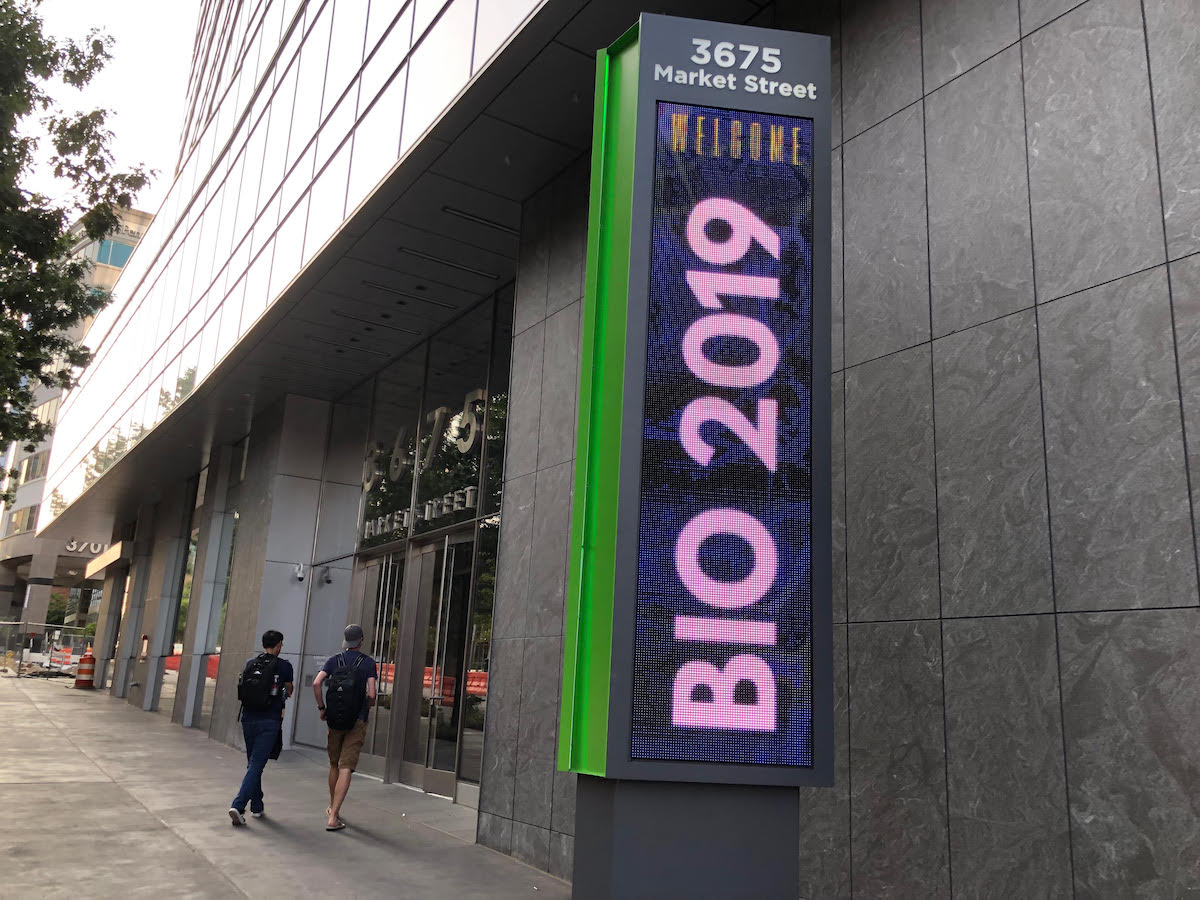While the world watched the science industry research and battle the COVID-19 pandemic, the Philadelphia region slid into a higher ranking on the top U.S. life sciences market, a report by real estate firm CBRE shows.
The region placed eighth among the country’s top life sciences clusters in 2019, and this year, it rose to seventh place. It’s ranked above New York City, Seattle and Los Angeles, but falls just short of New Jersey, Raleigh-Durham and the Washington D.C.-Baltimore areas, with Boston-Cambridge and the San Francisco Bay Area topping the list.
The ranking is determined by assessing the region’s life sciences job base, the amount of lab space inventory and the amount of funding it attracts from venture capitalists and the National Institutes of Health.
Philadelphia had one of the biggest increases in jobs between 2018 and 2019 — 5.7% compared to 4.2% nationally — the report showed. It also saw a huge increase in funding: $791 million in life sciences in VC dollars and $1.1 billion in NIH funding in the fiscal year 2019.
Register hereWhile the pandemic has certainly accelerated the life sciences boom, Philadelphia already had a lot of momentum, CBRE EVP Bob Zwengler told Technical.ly.
“The race for a vaccine has ramped up efforts, but the momentum has been here for years,” he said, especially in cases where large institutions such as University of Pennsylvania or Children’s Hospital of Philadelphia have spun out companies or started incubators. Penn is the city’s single largest NIH funding recipient, receiving just over half of all funding from the institutions.
Much of this office and lab space is centralized in University City, but there are hubs of large labs and manufacturing spaces popping up in the suburbs, like the new Discovery Labs in King of Prussia.
Some of the city’s largest life science tenants include Iovance Therapeutics at the Navy Yard, with 136,000 square feet, and Century Therapeutics in University City, with 32,000 square feet. The city has also seen an increase in construction with projects like One uCity Square, a mixed lab and office space coming early next year.
And as the region’s life sciences companies grow, Zwengler said, they attract other companies and more VC dollars. Especially in the last few years, Philadelphia has become known for attracting and growing cell and gene therapy companies.
“Philadelphia’s uniquely concentrated academic, healthcare and research institutions, coupled with a deep and experienced life sciences workforce from the longstanding presence of big pharma, have all contributed to significant growth of the local life sciences market,” Zwengler said. “Increased activity from institutional investors, local and out-of-market companies, and venture capital deal volume is reflective of Philadelphia’s emergence as one of the top locations in the world for cell and gene therapy research.”







